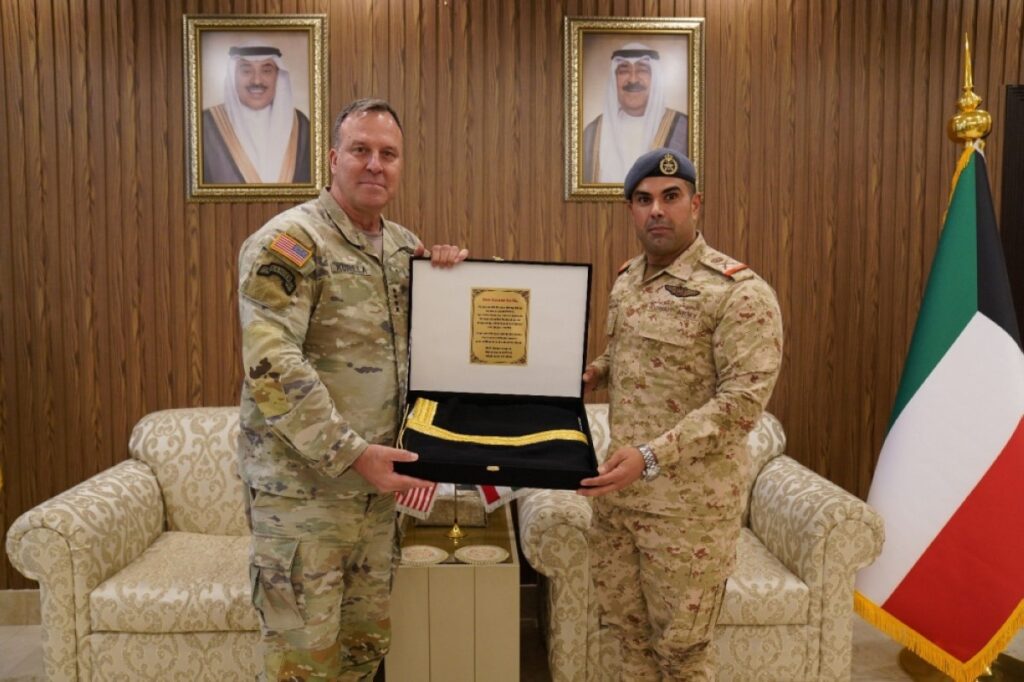KUWAIT: Kuwait’s defense and security institutions stepped up regional coordination on Thursday with back-to-back high-level meetings and agreements involving the United States and France. In separate engagements, the Kuwaiti Armed Forces and National Guard both held talks with international counterparts to strengthen joint efforts on military training, intelligence sharing, and regional stability.
The Kuwait National Guard signed a memorandum of understanding with the French Gendarmerie to boost coordination in military and security fields, including joint training and the exchange of expertise. The agreement was signed by Lt Gen Hashem Al-Rifaie, Undersecretary of the National Guard, and Olivier Gauvin, French Ambassador to Kuwait.

Lt Gen Sabah Jaber Al-Ahmad Al-Sabah meets with US Central Command Commander Gen Michael Kurilla.
According to a statement from the National Guard, Al-Rifaie emphasized the Kuwaiti leadership’s commitment—under His Highness the Amir Sheikh Meshal Al-Ahmad Al-Jaber Al-Sabah, the Supreme Commander of the Armed Forces, and His Highness the Crown Prince Sheikh Sabah Al-Khaled Al-Hamad Al-Sabah—to deepening ties with France across multiple sectors. Al-Rifaie conveyed the National Guard’s appreciation and highlighted the “long-standing, distinguished historical relations” between Kuwait and France.
Separately, Lt Gen Sabah Jaber Al-Ahmad Al-Sabah, Deputy Chief of General Staff of the Kuwait Armed Forces, met with US Central Command (CENTCOM) Commander Gen Michael Kurilla to discuss “a number of issues of mutual interest,” according to a statement from the Kuwaiti General Staff. The meeting, held at Lt Gen Al-Sabah’s office, covered regional and international developments, and ways to expand bilateral military cooperation. The two sides also “exchanged views on evolving security challenges in the region and how to strengthen joint military action to achieve regional security and stability,” the statement said. Both leaders praised the deep-rooted partnership between Kuwait and the United States, which they said reflects “decades of collaboration and continuous coordination.” They stressed the importance of “continued coordination and intensified joint efforts to face security challenges.” — KUNA

